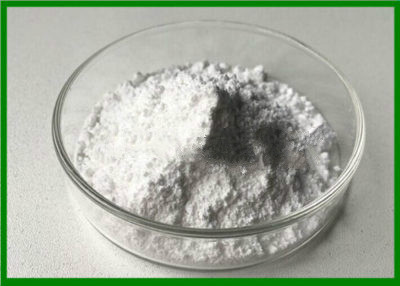Buy Medroxyprogesterone acetate (MPA) Powder Raw Birth Control Hormonal Medication For Endometriosis Treatment CAS 71-58-9
What is Medroxyprogesterone Acetate?
Medroxyprogesterone acetate (MPA) is a hormonal medication of the progestin type. It is used as birth control and as part of menopausal hormone therapy. It is also used to treat endometriosis, abnormal uterine bleeding, abnormal sexuality in males, and certain types of cancer. It is used by mouth or injection into a muscle or under the skin.
Medroxyprogesterone Acetate Basic Information
| Product name |
Medroxyprogesterone Acetate |
| Synonyms |
Medroxyprogesterone 17-acetate;hydroxymethylprogesterone acetate |
| CAS Registry Number |
71-58-9 |
| M.F. |
C24H34O4 |
| M.W. |
386.52 |
| Assays |
99% |
| Appearance |
White or white crystalline powder |
Medroxyprogesterone Acetate Certificate of Analysis
| Product name |
Medroxyprogesterone Acetate |
| CAS No. |
71-58-9 |
Outer Packing |
1KG |
| Production date |
2018.02.05 |
Shelf life |
2021.02.04 |
| Standard adopted |
USP34 |
| Items of analysis |
Specification |
Results |
| Appearance |
White powder |
White powder |
| Identification |
TLC and HPLC |
Conforms |
| Specific rotation |
+45°~+51° |
50.33° |
| Any single impurity |
≤1.0% |
0.27% |
| Total impurities HPLC |
≤1.5% |
0.64% |
| Total impuritiesTLC |
≤2.0% |
0.81% |
| Loss on drying |
≤1.0% |
0.05% |
| Impurity A |
≤0.5% |
Conforms |
| Microbial Limit |
Conforms |
Conforms |
| Methanol |
≤3000ppm |
Conforms |
| Dichloromethane |
≤500ppm |
Conforms |
| Assay |
97.0~103.0% |
99.24%HPLC |
| Particle size |
100%≤10um |
100%≤10um |
| Conclusion |
Qualified |
Medroxyprogesterone Acetate Application
In females, the most common use of MPA is as an oral or depot-injected contraceptive and also as the progestin component of menopausal hormone therapy to prevent endometrial hyperplasia and cancer. MPA is also used as a treatment for endometriosis, dysmenorrhea, and amenorrhea. MPA, along with other progestins were developed to allow the hormones to be taken orally, as progesterone (the hormone made by the human body) could not be taken orally before the process of micronization was developed.
In males, MPA has been used to control inappropriate sexual behavior to chemically castrate convicted sex offenders.
MPA is an extremely effective contraceptive when used with relatively high doses to prevent ovulation. It has also been used to treat benign prostatic hyperplasia, as a palliative appetite stimulant for cancer patients, and at high doses (800 mg per day) to treat hormone-dependent cancers of primarily the breast, but also other types.
Though not used as a treatment for epilepsy, MPA has been found to reduce the frequency of seizures and does not interact with anti-epileptic medications. MPA does not interfere with blood clotting and appears to improve blood parameters for women with sickle cell anemia. Similarly, MPA does not appear to affect liver metabolism, and may improve primary biliary cirrhosis and chronic active hepatitis. Women taking MPA may experience spotting shortly after starting the medication but is not usually serious enough to require medical intervention. With longer use amenorrhoea can occur as can irregular menstruation which is a major source of dissatisfaction, though both can result in improvements with iron deficiency and risk of pelvic inflammatory disease and often do not result in discontinuing the medication. MPA is also prescribed in combination with an estrogen to prevent endometrial hyperplasia in post-menopausal women who are undergoing menopausal hormone therapy.
MPA has also been prescribed in feminizing hormone therapy for transgender women due to its progestogenic and antigonadotropic effects.


